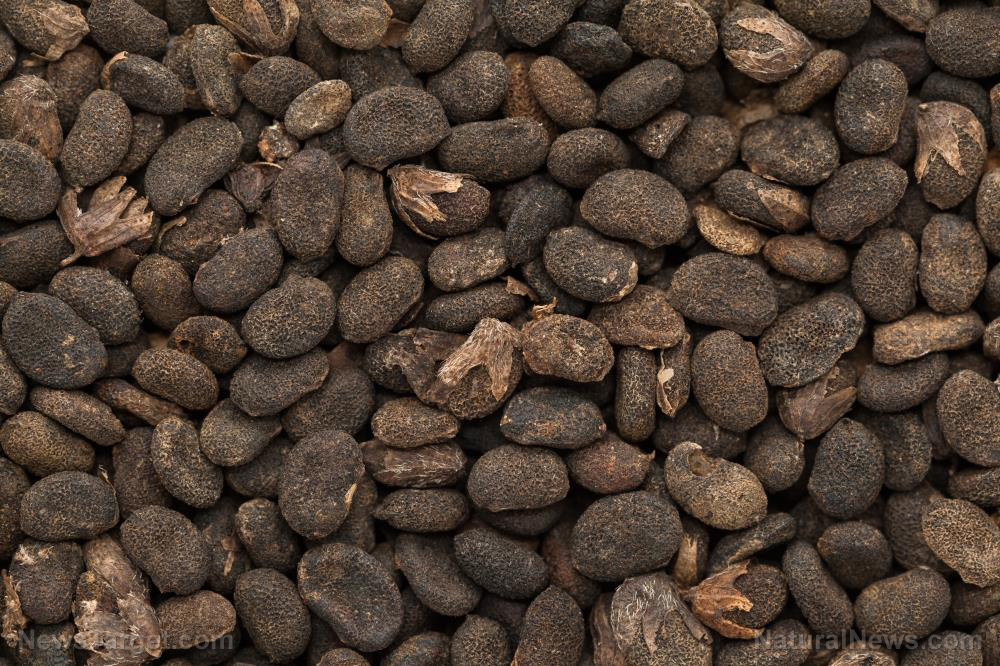How chili peppers can slow down the progression of lung cancer
10/17/2019 / By Melissa Smith

Did you know that chili peppers could potentially offer a natural solution to cancer? Researchers from the Marshall University – Joan C. Edwards School of Medicine found that capsaicin, the pungent compound in chili peppers, can stop lung cancer metastasis dead on its tracks.
The search for lung cancer treatment is important as this type of cancer is the leading cause of cancer death among both men and women in the U.S., according to the American Cancer Society (ACS). The ACS also estimates that more than 200,000 people develop lung cancer every year, with 150,000 dying from it. Most cancer deaths are caused by the disease metastasizing or spreading to distant parts of the body.
In their study, the researchers examined capsaicin in three cultured lines of human non-small cell lung cancer cells. They found that the compound inhibited the first stage of metastasis called “invasion.”
The researchers also conducted an animal trial in which they fed mice with lung cancer a diet enhanced with capsaicin. Through this, they found that the animals had a much smaller number of metastatic cancer cells in their lungs compared with mice that did not receive the treatments.
In additional cell experiments, the researchers found that capsaicin inhibited metastasis in lung cancer by blocking the activation of the Src protein. This protein is needed in regulating the proliferation, survival, and mortality of the cells.
However, the researchers noted that capsaicin may have some unpleasant side effects, including a burning sensation, gastrointestinal irritation, and stomach cramps. For this reason, they noted that need to develop capsaicin analogs that would counter its side effects.
Their results suggested that capsaicin directly interacts with Src and prevents Src activation to stop the spreading of lung cancer. The researchers suggested that their findings may shed light on the development of novel anti-metastatic treatments for human lung cancer.
“Our study suggests that the natural compound capsaicin from chili peppers could represent a novel therapy to combat metastasis in lung cancer patients,” said Jamie Friedman, the first author of the study.
The research team presented their findings at the American Society for Investigative Pathology’s annual meeting in Orlando, Florida.
Chili peppers are also effective against breast cancer
The study above is not the first study to discover the cancer-fighting benefits of chili peppers. Earlier research published in the journal Breast Cancer: Targets and Therapy found that capsaicin can slow down triple-negative breast cancer, a type of breast cancer that is particularly aggressive and hard to treat.
Researchers from Ruhr University Bochum in Germany tested the effects of this spicy molecule on SUM149PT cell culture, a model for triple-negative breast cancer. They were motivated by existing research, which suggested that several transient receptor potential (TRP) channels affect cancer cell growth. TRP channels are membranous ion channels that conduct calcium and sodium ions. They can be affected by several stimuli such as temperature or pH changes.
For the study, the German researchers looked at the expression of TRP channels in a vast amount of breast cancer tissue. They also analyzed and uncovered how the olfactory receptor TRPV1 could be used in breast cancer treatment.
The researchers found that the TRPV1 receptor appeared very frequently in the cultivated cells. This olfactory receptor is typically found in the trigeminal nerve, the fifth cranial nerve. It is activated by capsaicin and helional, a chemical compound that gives off the scent of fresh sea breeze.
When the researchers added capsaicin and helional to the cultured cells for several hours or day, the TRPV1 receptor was activated. This activation caused cancer cells to die more slowly. In addition, tumor cells died in larger numbers, while the remaining ones were not able to move as fast as before. Taken together, these findings suggested that the ability of breast cancer cells to spread was reduced. (Related: Anticancer food: Jalapeños strip away the defenses of cancer cells.)
Sources include:
Tagged Under: alternative medicine, anticancer, cancer treatment, capsaicin, chili pepper, chili peppers, disease treatments, food cures, food is medicine, functional food, lung cancer, lung health, natural cures, natural medicine, peppers, phytonutrients, prevention, research
RECENT NEWS & ARTICLES
COPYRIGHT © 2017 PREVENT CANCER NEWS



















